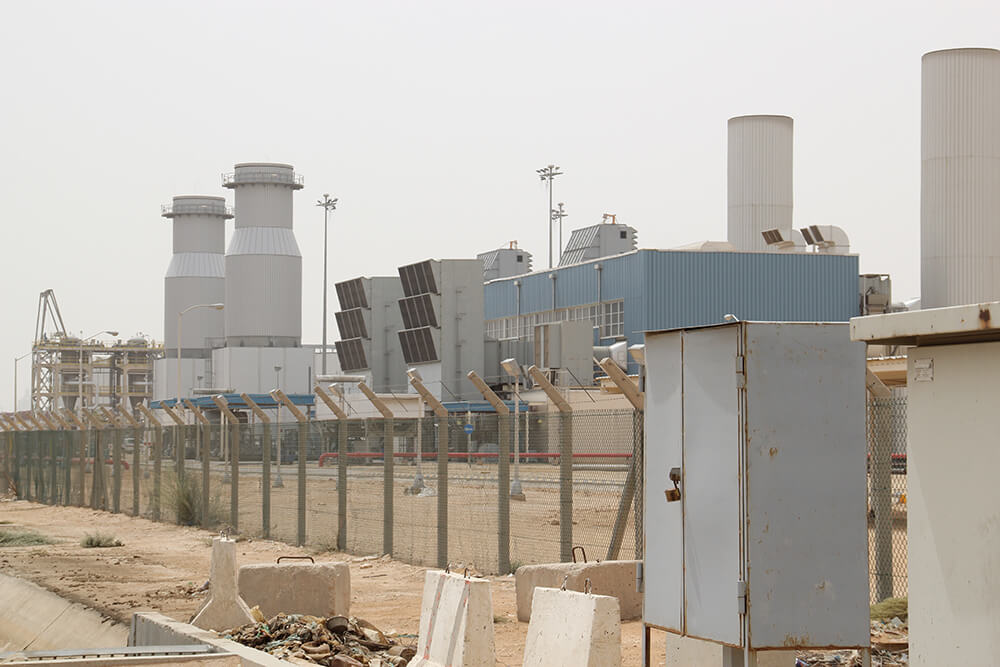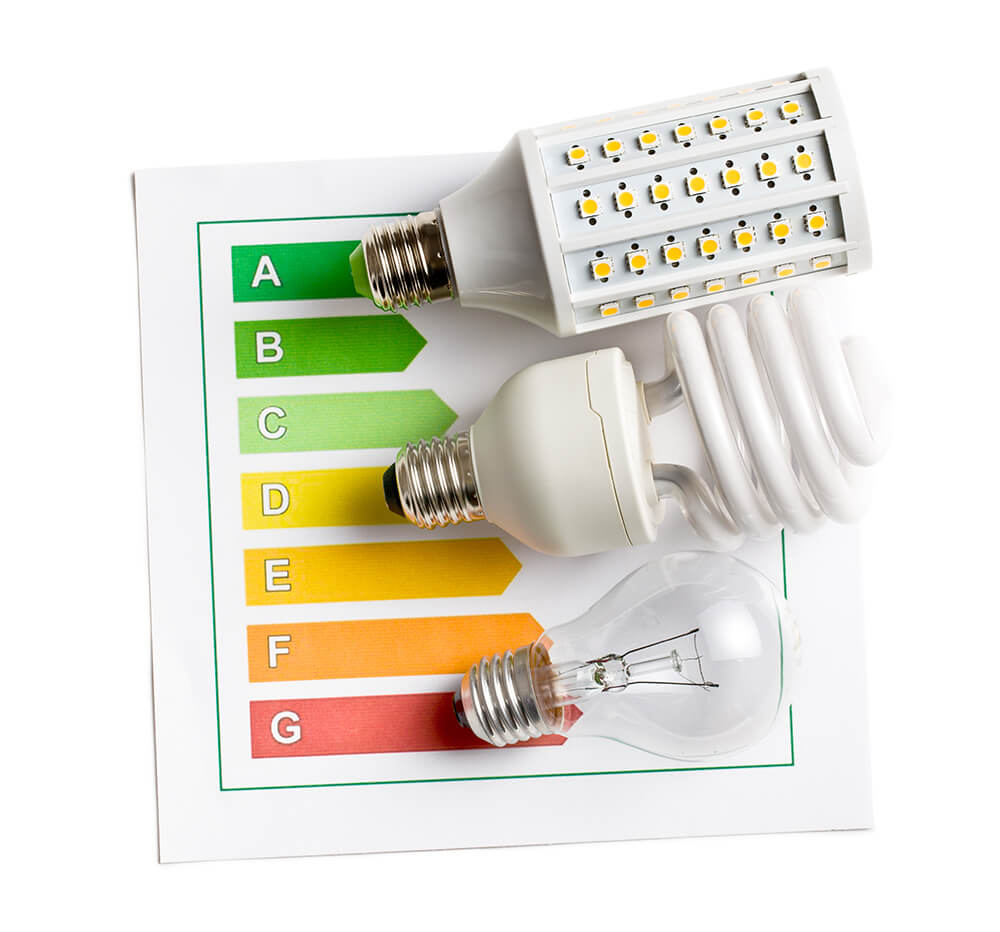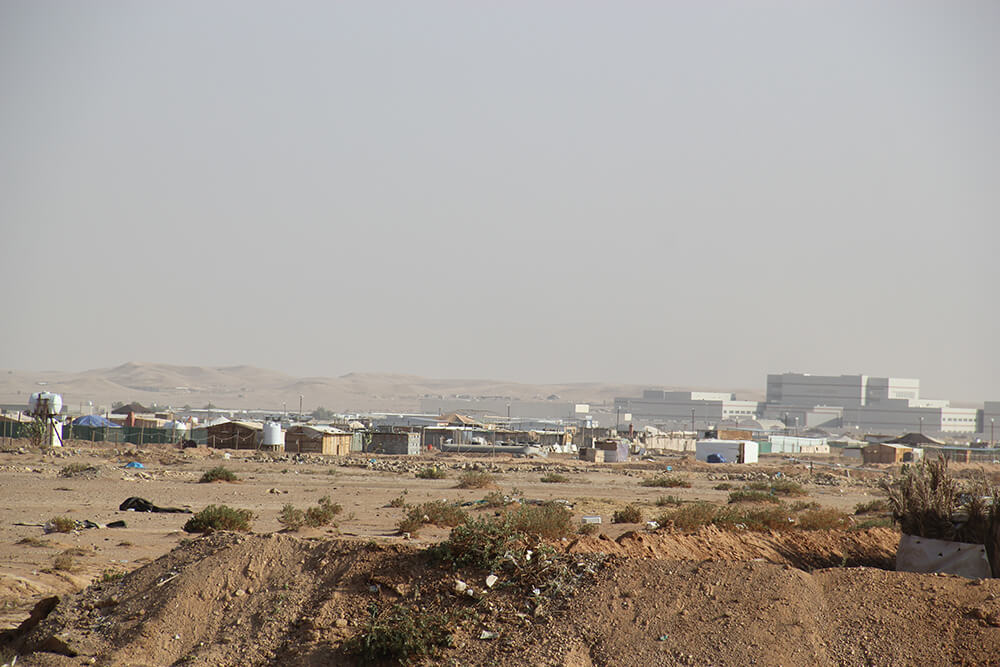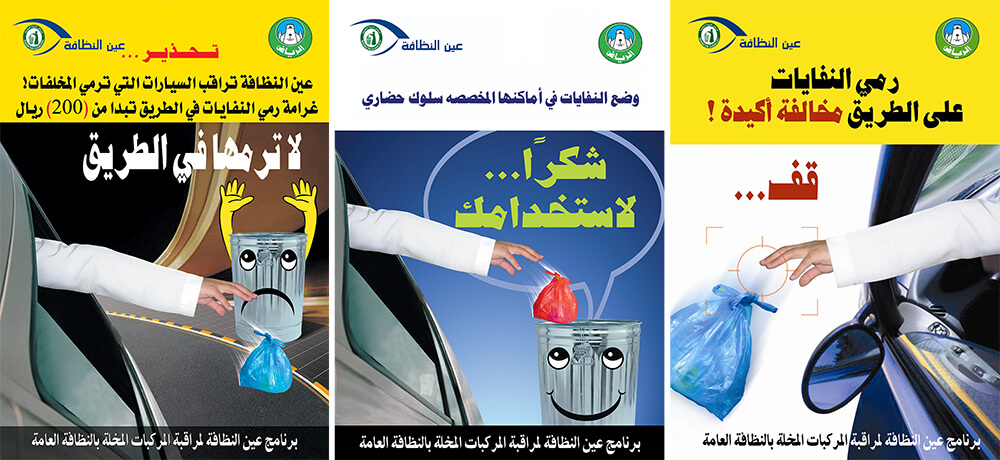
Monitoring the Emissions from the Electric Power Stations
Program Objective
Following and monitoring the emissions issued by the electric power stations at Riyadh, and applying the procedures for limiting its negative effects.
Responsible Agencies
● Saudi electricity company
Participating Agencies
● The General Authority for Meteorology and Environmental Protection
Procedures of Program Execution
● Preparing a comprehensive study to evaluate the environmental effect resulting from the electric power stations of Riyadh
● Applying the procedures of limiting the emissions
● Setting up an air-quality monitoring station
● Measure the emissions from the chimneys (CEMS)
Preparing an environmental record on restrictive standards of the general environmental system, also preparing the indicators for the pollution rate reduction
● Setting up a time schedule to eliminate the air pollution, especially from the electric power stations located within the living quarters.
● Putting in place a time schedule to shift from using the crude fuel to another sustainable and effective environmental alternative used in operations of all electricity power stations.

Rationalization of Energy Consumption
Program Objective
Reduce energy utilization, and, get optimal utilization of the electric energy resources to preserve the environment
Responsible Agencies
● Saudi Energy Efficiency Center
Participating Agencies
● Riyadh municipality
● Electricity and cogeneration regulatory authority
● Saudi electricity company
● The Ministry of Energy, Industry and Mineral Wealth
● Riyadh development authority
Procedures of Program Execution
● Conduct a study about the increase of the carbon quantity in Riyadh
● Activating environmental awareness programs
● Applying thermal insulation in all buildings

Protection and Development of the Wildlife Areas
Program Objective
Rehabilitation and protection of the wildlife that is negatively impacted because of the urban developmental processes in the city.
Responsible Agencies
● The Saudi Wildlife Authority
Participating Agencies
● Royal commission of Riyadh city
● Riyadh municipality
● The Ministry of Environment, Water and Agriculture
● Riyadh police office
Procedures of Program Execution
● Protect and provide the suitable environment to maintain the wildlife
● List the animal and botanical wildlife to make studies and detailed maps for their sites
● Regulate grazing and prevent cutting of trees in the wildlife areas
● Clean the wildlife areas which are damaged because of wastes
● Restoration of the vegetation and the afforestation in the damaged wildlife areas

Adjust the Random Activities in Riyadh and Control It
Program Objective
Set a work plan in place to remove the random activities, and to suggest alternative locations for the seasonal activities according to a regulated mechanism.
Responsible Agencies
● Riyadh municipality
Participating Agencies
● Riyadh development authority
Procedures of Program Execution
● Removing the random activities in the empty areas and around the city which include camels and sheep’s enclosures, and the camps with its random entertainment activities that spread around it and its associated activities
● Increasing the monitoring and follow-ups to eliminate this phenomenon through a continuous work program, and support the committees responsible for monitoring, irregularities and subsidiary municipality by providing the possibilities that enable it to do its works accordingly
● Regulating some of the necessary seasonal and temporary activities like the seasonal camps, locations of construction equipment standing or the temporary sale and what follow these camps from associated activities

Control Littering in Public Places
Program Objective
Eliminating littering in the gardens, parks, streets, and open areas. Also, raise the environmental awareness to maintain the city environment.
Responsible Agencies
● Riyadh municipality
● Riyadh traffic management
Participating Agencies
● All the participating agencies in the high authority for environment protection at Riyadh
● The special sector
● The volunteers
● School and universities students
Procedures of Program Execution
● Monitor littering in gardens, streets, and open areas
● Apply a cleanliness fine program where a fine is applied for throwing litter from vehicles in to the roads
● Link the eye cleanliness program to include the public gardens and parks
● Raise the people’s awareness about the disadvantages of littering and the related fines
● Include littering as a traffic violation
● Increase the eye cleanliness program members
● Maintain the natural environment, with a partnership between governmental and special sectors, the volunteers, and the students

Preservation of Sources of Drinking Water and Its Quality
Program Objective
Preservation of the sources of drinking water from pollution either through wells or networks, rationalization of water consumption, diversifying of its extraction resources and limiting the total dependence on the underground water.
Responsible Agencies
● The national water company (NWC)
Participating Agencies
● Riyadh municipality
● The Ministry of Environment, Water and Agriculture
● The Saudi authority for the specifications, standards, and the quality
● The Ministry of Culture and Media
● The Saudi authority for industrial cities and technical areas
The General Authority for Meteorology, Environmental Protection and The Ministry of Municipal and Rural Affairs
Procedures of Program Execution
Rationalization of water consumption
● Following procedures that disallow manufacture, import and use materials and sanitary ware which are non-rationalizing in water consumption
● Complete the rationalization campaigns through TV, radio and social media
● Studying the actual consumption of water usage
● Set up a time plan to replace the old water networks and reduce the loss rate of networks
Protecting and diversifying the water resources
● Monitoring the water networks and protect it from pollution
● Monitoring the wells and protect it from pollution
● Survey the locations of depleted wells and set up a time plan to close them
● Utilizing treated sewage water for industrial, agricultural and recreational purposes
● Utilizing filtration and analyzing tanks together for disposal of the sewage water instead of the cesspits only, and this is done at the sites that do not have these cesspits.
Sanitation services
● Benefit from the surface water and rains
● Protect the underground water from throwing the industrial wastewater in it without being handled
Monitoring the quality of the drinking water
● Taking samples and surveys from the water to do the required chemical, physical and microbiological tests at the drinking water network and water bottling companies
Recycling the gray water
● Finding special tanks to reuse the gray water within the apartment and commercial buildings
● Complete setting up specifications for the gray water and its processing systems
● Putting in place the instructions about reusing the gray water and support it with awareness programs aimed at people


